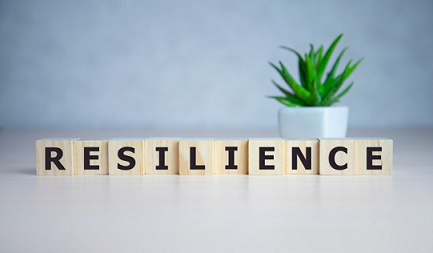Wellbeing and resilience for beginning principals: nurturing a positive mindset
By Editor on August 14, 2023 in Leadership
Leadership advisor Diana Peri shares ideas with beginning principals on nurturing a positive mindset to navigate the challenges that come with the role.
Ki te wātea te hinengaro, me te kaha rere o te wairua, ka tāea ngā mea katoa. When the mind is free and the spirit is willing, anything is possible.
This whakataukī encapsulates the essence of wellbeing and resilience. As beginning principals, it is vital to prioritise your own wellbeing and cultivate resilience to navigate the challenges that come with the role.
When I meet with beginning principals in my role as a principal advisor, one of the first things I inquire into is their sense of wellbeing. The Teaching Council's Leadership Capability Framework (2018) highlights the significance of school leaders attending to their own learning as leaders and prioritising their wellbeing, as well as embodying the organisation's values and demonstrating moral purpose, optimism, agency, and resilience. Therefore, it is crucial for you as a beginning principal to develop resilience to ensure a sense of wellbeing throughout the challenges you will face.

As principal advisors we acknowledge that stress is inevitable, and to some extent, necessary to keep us challenged and motivated. From our experience as principals, however, we understand the sheer volume of work and how issues can weigh on the mind.
To manage worries and concerns effectively, it is helpful to identify what you can and cannot influence or control. While some factors are beyond your control, and systemic stresses exist that you must manage or accept, building resilience can empower you to be proactive in influencing or controlling where you direct your energy. Steven Covey (1990) suggests considering where we focus our energy, urging us to be mindful of the issues occupying our thoughts in our work.
Reflecting on your concerns as a school leader, you may find that they fall into various categories. Some concerns may be tasks you are eager to accomplish, while others may be difficult or worrisome challenges. There might also be areas where you desire to invest more time or changes you aspire to bring about. Additionally, there could be issues you simply wish would disappear.

Within this "circle of concern," you will encounter aspects over which you have little or no control. For instance, you cannot control government policy. However, there are also areas where you possess some influence. Covey (1990) refers to this smaller sphere as the "circle of influence" and emphasises that leaders who focus their energy within this circle feel energised, positive, and gradually expand their sphere of influence.
While challenges in the workplace are inevitable, you have the power to cultivate resilience. By doing so, you enhance your ability to identify, manage, and bounce back from challenges more effectively. Regularly evaluate where you are directing your energy. Are you fixated on things beyond your control, driven by negative emotions and a sense of helplessness? Or are you focusing on areas where you can effect change and exert some control?
Nurturing a positive mindset and directing your energy towards your “circle of influence” allows you to maintain your wellbeing and build resilience as a beginning principal. By acknowledging your limitations, embracing the challenges within your control, and fostering a proactive approach, you can empower yourself to navigate the complex landscape of educational leadership with optimism and determination.
Remember, as a beginning principal, your wellbeing matters. Nurture your mind and spirit, and you will discover that anything is possible when you cultivate resilience and attend to your own growth and wellbeing.
Reference
1. Education Council of Aotearoa New Zealand. (2018). Educational Leadership Capability Framework.
To learn more get in touch with Micheal today
Other articles you might like
Effective leaders build a school culture that ensures all learners experience equity and excellence. A culture where diversity is a strength, all are valued, and everyone grows. A culture where the right problems are identified, clarified, and where agreed solutions benefit all.
I was asked recently by a secondary middle leader what professional learning I could recommend as he was keen to start applying for senior leadership positions. Ongoing professional learning is an important part of any teacher’s life, just as learning on the job is important.
As I reflect on five years as a leadership advisor, and a significant number of days in lockdown during 2020 and 2021, I am prompted to consider the dysfunctional staff relationships within some schools.
